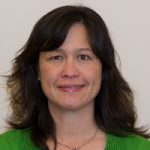

This Member Update was provided by Al Matthews, Software Program Support & Development Specialist, and Christine Wiseman, Head – Digital Services Unit, Atlanta University Center Robert W. Woodruff Library.
A new member of the Digital Library Federation (DLF), the Atlanta University Center Robert W. Woodruff Library (AUC Woodruff Library) is a mid-sized academic library that serves the world’s largest consortium of Historically Black Colleges and Universities (HBCUs): Clark Atlanta University, the Interdenominational Theological Center, Morehouse College and Spelman College.
Digital initiatives at the AUC Woodruff Library include designing workflows and policies for born digital materials, evaluating content management and preservation systems, and digitizing deteriorating audiovisual materials. Staff members from AUC Woodruff Library’s Archives Research Center are following Society of American Archivists (SAA) guidelines for addressing born digital materials as outlined in their “Jump-In Initiative,” beginning with a survey, an inventory of holdings, and meanwhile developing workflows and procedures. In the past year, a working group was established to evaluate digital content management and preservation systems and deliver preliminary recommendations for the library to consolidate platforms and offer improved back end file and metadata management. Implementation and testing has since begun on working group recommendations including migrating from Archivists Toolkit to Archives Space for archival management and establishing a demonstration Fedora 4/Hydra institutional repository. Moreover, the conversion of original magnetic audio and visual holdings is an area of priority. Given that digitized audio and visual materials can swiftly result in terabytes of data storage needs, we are thinking about how many copies to make of such material, how to provide access, and the cost of permanent storage. A tiered approach to digital preservation based on priorities might be the most economical and practical option.
Since 2011, the HBCU Library Alliance has been preserving digital content in the MetaArchive Cooperative, a distributed LOCKSS (lots of copies keeps stuff safe) digital preservation network. The HBCU Library Alliance (HBCU LA) is a consortium of over 100 libraries formed to collaborate around the areas of leadership development, archives preservation, strategic planning, and assessment. In 2005, members of the HBCU LA began a five year collaboration with SOLINET (now LYRASIS) and Cornell University to build digital expertise among librarians and archivists. Funding was received from The Andrew W. Mellon Foundation in support of the collaboration. The partnership resulted in the creation of an online digital collection, A Digital Collection Celebrating the Founding of the Historically Black College and University. The collection was developed using CONTENTdm. The HBCU LA Digital Collection consists of more than 16,000 images from 22 institutions of primary source materials related thematically to the founding of Historically Black Colleges and Universities. Images of materials dating from the early 1800s to the present document the role of HBCUs in the history of African-American higher education.
On behalf of the HBCU Library Alliance, The AUC Woodruff Library provides technical support and hosts the server for the HBCU LA digital collections. The HBCU Library Alliance is an active member of the MetaArchive Cooperative; AUC Woodruff Library staff coordinates the ingest of master files and metadata from HBCU LA collections into the MetaArchives for long term preservation purposes. Staff also participates in monthly conference calls, serves as co-chair the preservation committee, and attends annual meetings. Future initiatives for the MetaArchive Preservation Committee include born-digital workflows and audio and video reformatting and storage considerations.
As part of the HBCU LA’s membership in MetaArchive, the AUC Woodruff Library hosts a LOCKSS node, a secure server on a closed, geographically dispersed network. This allows for files to be replicated on six of the networks servers for preservation purposes. Periodic checks among the servers identify any corrupted files and makes necessary repairs. A recent project with MetaArchive involved adopting the draft BagIt File Packaging standard. AUC Woodruff Library was the first organization to preserve the HBCU LA’s content according to this standard, stimulating new open source work on our part and contributing code to an existing Library of Congress project on the topic of local fixity (cryptographic snapshots of a file) in BagIt-Python.
As the AUC Woodruff Library’s digital initiatives evolve from a series of projects to a full-fledged program with policies, procedures and strategic objectives, memberships in organizations such as the DLF are critical to our success. Even after just a few months as a new DLF member we have already gained valuable knowledge about best practices and emerging initiatives related to digital curation. At the 2014 annual meeting in Atlanta, we had the opportunity to present on the HBCU Library Alliance digital initiatives, as well as gain exposure to the vast array of digital programs and resources offered by DLF including hands-on development support for our Fedora/Hydra demonstration project. Moving forward with the management and preservation of digital collections, it’s reassuring to know that the challenges we encounter are most likely not unique, and we have a vast network of colleagues and resources to collaborate with and consult.
Atlanta University Center Robert W. Woodruff Library
111 James P. Brawley Dr. SW
Atlanta, GA 30314
www.auctr.edu

